Croatian Engineers Seek Higher Pay and More Foreign Workers
ZAGREB, 2 March 2022 - Engineers' pay should be increased by 30 to 50 percent, and in addition to the already imported 30,000 foreign workers, the Croatian construction sector still lacks 20,000 workers, an event marking Croatian Engineers Day was told in Zagreb on Wednesday.
This year's Engineers Day was devoted to long-term plans to make the engineering profession more competitive on both the domestic and global markets. The focus was on untapped national resources and on what the domestic STEM industry can do to put them in the service of sustainable development.
Zdravko Jurčec, head of the Croatian Engineering Association, which organised the event, said that the earthquakes that had struck the country two years ago had shown the importance of having domestic knowledge to deal with such emergencies. "Now we are facing a critical period for economic recovery, which will be a major challenge for the Croatian engineering profession," he said.
"It's regrettable that none of the competent institutions has wondered what the emigration of engineers means, how much this drain of STEM resources has cost us and how to slow or neutralise these unwanted processes," Jurčec said.
He stressed that engineers' pay should be increased by at least 30 to 50 per cent and that in addition to about 30,000 workers already imported, the construction sector still lacked about 20,000 workers.
For more, check out our lifestyle section.
HNB Intervenes in Foreign Currency Market to Preserve Kuna Exchange Rate
ZAGREB, 2 March 2022 - The Croatian National Bank (HNB) on Wednesday intervened in the foreign exchange market to preserve the kuna exchange rate, selling €171 million to commercial banks at an average exchange rate of HRK 7.562505 for one euro, the HNB said in a brief statement.
This was the central bank's first foreign exchange intervention since 16 June 2021.
The kuna strengthened against the euro by a marginal 0.0001 per cent from Tuesday.
Today's middle exchange rate, effective from Thursday, is 7.560528 kuna for one euro.
The Croatian financial system is currently enjoying record liquidity of about HRK 80 billion.
For more, make sure to check out our business section.
Opposition Says Croatian Problems Mustn't be Ignored Due to War in Ukraine
ZAGREB, 2 March 2022 - Party groups in parliament on Wednesday unanimously condemned the Russian aggression against Ukraine, but part of them warned that Croatia's internal affairs must not be neglected because of the war in Ukraine.
Russia's attack on Ukraine is not an argument against the government's fall but an argument in favour of the government's fall, the war cannot be used as a fig leaf to cover up crime, said Nino Raspudić (Bridge), recalling the problems the government has with former minister Darko Horvat and incumbent minister Josip Aladrović.
PM called on to replace ministers the public no longer has confidence in
"In such a dangerous geopolitical situation, having the top of government riddled with crime and corruption is a security threat for Croatia, such people can be blackmailed, and that's why this government has to leave," said Raspudić.
Dalija Orešković (Centre) thinks similarly and she pointed out this was an opportunity to realise how much internal mechanisms of control are important for democracy and peace.
"While the world wonders if there's anyone in the Kremlin who can stop Putin, we must ask ourselves if Croatia today is what we wanted it to be if the HDZ's rule is unquestionable regardless of the amount of corruption," she said, calling on the prime minister to replace the ministers the public no longer had confidence in.
"We don't know what awaits us and it's important that we have a stable government, and many things don't point to such a conclusion," said Stephen Nikola Bartulica of the Homeland Movement.
He said Croatia couldn't afford a government in the shadow of corruption scandals, stressing that the prime minister had a great responsibility to make decisive moves.
Krešo Beljak (HSS) underscored that Croatia had to protect its own interests in the crisis, suggesting that leaders of Western Balkan countries sit down and talk about defusing tensions so that the conflict doesn't expand.
Marijan Pavliček (Croatian Sovereignists) said Croatia had to be ready to receive Ukrainian refugees, work hard to increase the capacities of strategic commodity stocks and raise military readiness.
"The Croatian army must be on the eastern borders of the country," said Pavliček, adding that after Serbian President Aleksandar Vučić did not join the EU in condemning Russia, the Danube would be the border between the east and the west, and stability and instability.
Groups of the parliamentary majority gave their full support to the government measures to help Ukraine and expressed solidarity with the Ukrainian people.
The government reacted quickly, a few hours after the aggression, noted Branko Bačić (HDZ), pleased that the Croatian Postal Bank (HPB) was taking over Sberbank.
Bačić: Passivity in current situation would be immoral
In response to warnings that the sanctions against Russia, in which Croatia is also involved, would affect the Croatian economy, Bačić asked -- what's the alternative?
"Passivity is a situation like this would be immoral, it is important that Croatia sided with justice and freedom", he said, calling on Putin and Russia to stop the aggression and start peace talks.
In a debate on the prime minister's report on the situation in Ukraine, MPs also warned about the possible repercussions of the war for Croatia's neighbourhood.
Our interest, as an EU member, is to engage intensively with the neighbourhood, said Milorad Pupovac (SDSS), noting that the area of former Yugoslavia that is not integrated into the EU, as well as Albania, should be of special interest.
Veljko Kajtazi (Roma minority) hopes that everything happening with Ukraine will be an incentive to the EU to grant it the status of a membership candidate.
For more, check out our dedicated politics section.
Plans for Post-quake Reconstruction of Sisak County Presented to Local Builders
ZAGREB, 2 March 2022 - Sisak-Moslavina County Prefect Ivan Celjak on Wednesday presented local construction businesses and entrepreneurs with the planned dynamics of reconstruction in the earthquake-affected areas.
The programme encompasses the reconstruction of buildings in health, education, culture, road infrastructure and the like, so that all the projects can be implemented as planned.
The county submitted 68 projects to the solidarity fund valued at HRK 698.5 million. They include 20 projects for healthcare, 11 for education, 9 for culture and 12 for road infrastructure projects.
Several projects were highlighted such as the Sisak General Hospital, the Neuropsychiatric Hospital in Popovača, the Sisak, Petrinja and Glina branch health clinics, the Topusko Sanatorium, as well as four elementary and seven secondary schools and cultural venues.
Celjak said that eight projects valued at HRK 7.6 million were planned for the first quarter, 19 in the second quarter worth HRK 405.9 million and 13 projects, valued at HRK 184.2 million, should be implemented in the third quarter of 2022.
"The funds for reconstruction have been secured and we decided on this clear and transparent approach to inform the construction sector of the plans and dynamics of reconstruction aimed at the timely preparation and application for tenders," he said.
(€1 = HRK 7.55)
For more, check out our dedicated politics section.
Plenković: Croatia Cares for Stability and Security in its Neighbourhood
ZAGREB, 2 March 2022 - Croatia cares for stability and security in its immediate environment, promoting peace and good-neighbourly relations with the countries in southeastern Europe on their way to integration into the European Union and NATO, Prime Minister Andrej Plenković said in the Croatian Parliament on Wednesday.
"We want everyone to refrain from any incidents, any inflammatory rhetoric or anything that might destabilise the otherwise tense situation in at least three countries in our neighbourhood. We can't have two hotspots in Europe at the same time. The chaos that we now have is enough," the prime minister said in response to questions from MPs during discussion on the situation in Ukraine following Russia's military invasion.
MP Bojan Glavašević (Green-Left Bloc) recalled the statement by Bosnian Serb leader Milorad Dodik in which he supported Russian President Vladimir Putin and called Ukrainian defenders "an armed gang".
"As for Dodik and his view on the Ukrainian defenders, I condemn it unequivocally," Plenković said.
Plenković said that Croatia was taking care of the security of the LNG terminal on the northern Adriatic island of Krk, a strategic installation thanks to which Croatia has changed its position on Europe's energy map, and making sure there were sufficient supplies of food and at affordable prices.
Asked by Andreja Marić (Social Democratic Party) about the readiness of the healthcare system for a nuclear threat, the prime minister said that the Health Ministry had formed a task force to take care of all aspects of healthcare in all scenarios.
"As for threats with nuclear weapons, I sincerely hope such a scenario will not happen because it would be the end of the world as we know it," Plenković said.
Mario Kapulica of the ruling Croatian Democratic Union recalled that President Zoran Milanović had recently mocked the possibility of Russian aggression and spoken of extremists in Ukraine.
"This is when we have to give those who were not precise enough a chance to take the right side," Plenković said, agreeing that there had been "misjudgements and poorly worded sentences" and calling for "unity in the time ahead of us".
Condemning the aggression on Ukraine and expressing solidarity with the Ukrainian people, Plenković said that Ukraine was not a country that deserved the concept of neutralisation and being without a democratic leadership and its own armed forces.
The Croatian prime minister rejected the idea that the war in Ukraine was prompted by NATO's expansion. "That's not true," he stressed.
"This is a time when we have to uphold the fundamental principles no matter the cost, even if that may require giving up our way of life. This is a situation in which we must not have any doubts," he added.
Independent MP Karolina Vidović Krišto remarked that the prime minister should have submitted a report on the situation in Croatia and corruption, rather than the war in Ukraine on which he had no influence.
Plenković described her speech as inappropriate, harmful, untrue and defamatory. "We are working, while you are obstructing. We are winning and you are losing," the PM said.
For more, check out our dedicated politics section.
Milanović: Had Europe Had Stronger Role, War in Ukraine Might Not Have Happened
ZAGREB, 2 March 2022 - If Europe had had a stronger role, maybe the war in Ukraine would not have happened, President Zoran Milanović said on Wednesday, expressing support for Ukrainians who are defending themselves against the Russian invasion.
"I feel terribly sorry this has happened. One cannot say anything else but express support for a successful defence," Milanović told reporters during a visit to Pakrac, where he attended an event commemorating the 31st anniversary of the start of the Homeland War in the area of that western Slavonian town.
"It is practically impossible to take a big city without completely destroying it. If someone is willing to defend it," Milanović said, recalling that the Iraqi city of Mosul had been defended for eight months before it fell.
Close to 700,000 Ukrainian refugees have arrived in the EU.
The Croatian president said that it was a question for the government if Croatia was ready to take in Ukrainian refugees, noting that he could say that "we are morally ready for it."
"There is an information blockade. The Russian side is releasing what it wants, and that is very little. The other side actually does not know anything," Milanović said, adding that Croatian ambassadors could not do much either, notably the ambassador in Moscow because Russia shared little information.
PM Andrej Plenković said earlier on Wednesday that Croatia's Ambassador to Ukraine, Anica Djamić, had left Kyiv and was on her way to Lviv.
Milanović said that "one should always be concerned" when anyone threatens the use of nuclear weapons, and that that "would be the end of the world" but he does not think that that is happening now.
Answering a reporter's question, Milanović said that he had not spoken to Ukrainian President Volodymyr Zelenskyy, adding that he did not know how it could help and that it was too late to send peace messages.
"I would not want the conflict to move to cities because if it does, it will become horrible," he added.
Milanović expressed confidence that the war could be ended only by Ukraine and Russia or Russia and the USA, adding, "This is their conflict".
"If Berlin and Paris had been in charge, and they could not do it, war would not have happened...the Minsk Agreement was not implemented, who is to blame?" he said.
"If Europe had had a stronger role in this, and it was incapable of it, this conflict might not have happened," said Milanović.
There is no threat to Croatia
Milanović noted that PM Plenković should not have said that the level of the army's preparedness had been raised.
"That has caused alarm in the public. This is a serious matter... the level of the army's readiness has not been raised and will not be in the current circumstances. The army operates as in normal conditions, there is a slightly higher degree of protection, but that is within the remit of the Armed Forces' Chief-of-Staff," Milanović said, explaining that "this means one more guard."
"That has nothing to do with a more serious or any threat to Croatia. That has not occurred for the time being and will not occur," he said.
Milanović noted that at present he did not see any reason for holding a session of the National Security Council, and that Croatia should focus more on the rights of Croats in Bosnia and Herzegovina.
BiH, Kosovo deserve EU candidate status, too
The presidents of Bulgaria, the Czech Republic, Estonia, Latvia, Lithuania, Poland, Slovakia and Slovenia said in an open letter on Monday that Ukraine deserves the prospect of immediate EU membership.
In addition to Ukraine, Bosnia and Herzegovina and Kosovo, too, deserve EU candidate status, Milanović said today.
"I was willing to sign (the letter) only if that status was granted to Bosnia and Herzegovina and Kosovo," with the latter not having been recognised by all EU members, said Milanović.
He added that Croatia "wishes BiH well" and that Sarajevo should understand that.
Milanović also called for making a decision to launch accession talks with Albania and North Macedonia "which the EU has been mistreating for years", noting that this "is equally important to Croatia as is Ukraine."
In a direct message to Bosnian Serb leader Milorad Dodik, Milanović said that "it would be good if they returned to BiH institutions" and that he could soon phone him.
"Republika Srpska cannot get out of BiH, that's impossible... They belong in the West, the the Serb people belong in the West, not in Russia," he added.
As for Belgrade, Milanović said that now was time for it to decide where it belonged, "whether it is the EU or Russia, for sentimental reasons which I can understand."
Serbian President Aleksandar Vučić is not giving in to pressure from the West and does not want to introduce sanctions against Russia but has said that Serbia respects the territorial integrity of Ukraine.
For more on the Ukraine crisis and Croatia, as well as breaking news, follow our news section.
Cafe Road Split: Authentic Cafes Loved by Locals
March the 4th, 2022 - Cafe road Split - A look at the authentic cafes in the city loved by Split locals.
As you already may know, drinking coffee is a very special ritual in Croatia and even more in the Dalmatia region. Going to a cafe to have a cup of coffee is an important part of a day in Dalmatia, and we use this ritual to read the news, meet friends, have meetings, and much more than that. If the time spent drinking coffee could be measured, we would probably be at the very top. We drink coffee on many different occasions, and it usually lasts much more than the time needed for actually drinking the coffee. We will never drink coffee while standing or “on the go”. In the Croatian language, there is one word for both a cafe and a bar or a pub and it is “kafić” or “kavana”, and this is not a coincidence. When we invite someone to grab a coffee with us, we are referring to a drink and not specifically to coffee, it could easily mean that we will grab a beer or any other drink. Therefore, I will use the word cafe as a synonym for both cafe and bar.
“Splićani” aka inhabitants of Split, adore drinking coffee and beer, almost every “Splićo” has their favorite place to drink coffee/beer. Even more than that, every “Splićo” probably has a particular cafe for different situations, such as going into the city center, when going to the sea, when watching a game, and usually one that he considers his “kvartovski” hood cafe. A hood cafe is somewhere close to his home, which “Splićo” uses as his other living room (“tinel”). Cafes in Split are urban meeting points, where various people gather and you can hear all sorts of different stories.
In this article, I will try to mention some cafes that are unique, authentic, and which have a long tradition in this beautiful pearl on the Adriatic coast. It is really difficult to choose the most authentic cafes in Split, and this list will probably be very subjective, and there is a high probability I will not include some cafes that probably should be on this list, so I apologize in advance.
- Bellevue
Kavana Bellevue is located at the bottom of Split’s biggest town square Prokurative and is a part of the Hotel Bellevue. The cafe and Hotel were established 120 years ago. The long tradition, antique interior, and great location are some of the reasons why this cafe has a tremendous reputation among Split citizens. Bellevue is french for a beautiful view which this cafe certainly does include. Bellevue also appeared in the famous Split tv show "Velo Misto".
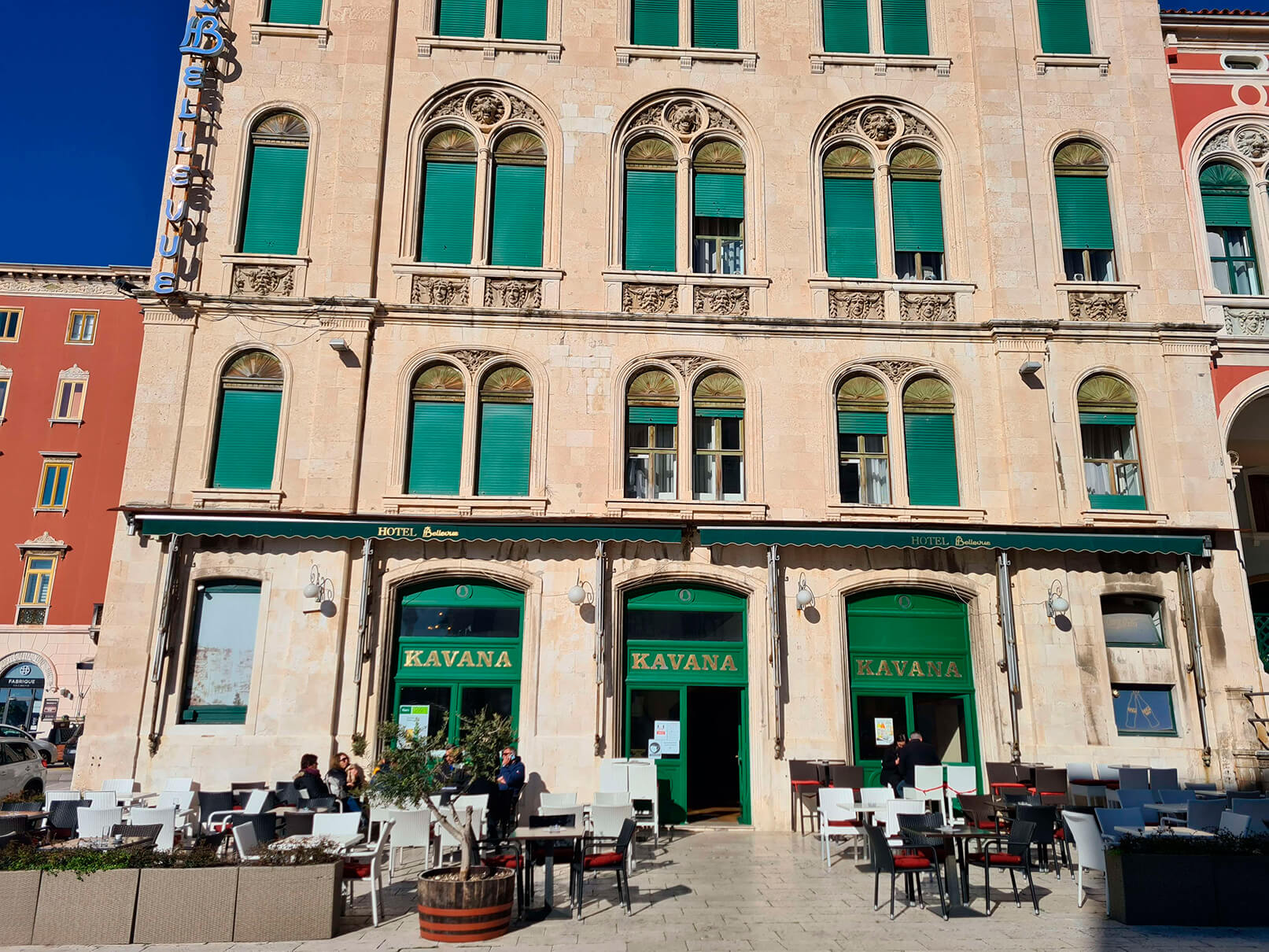
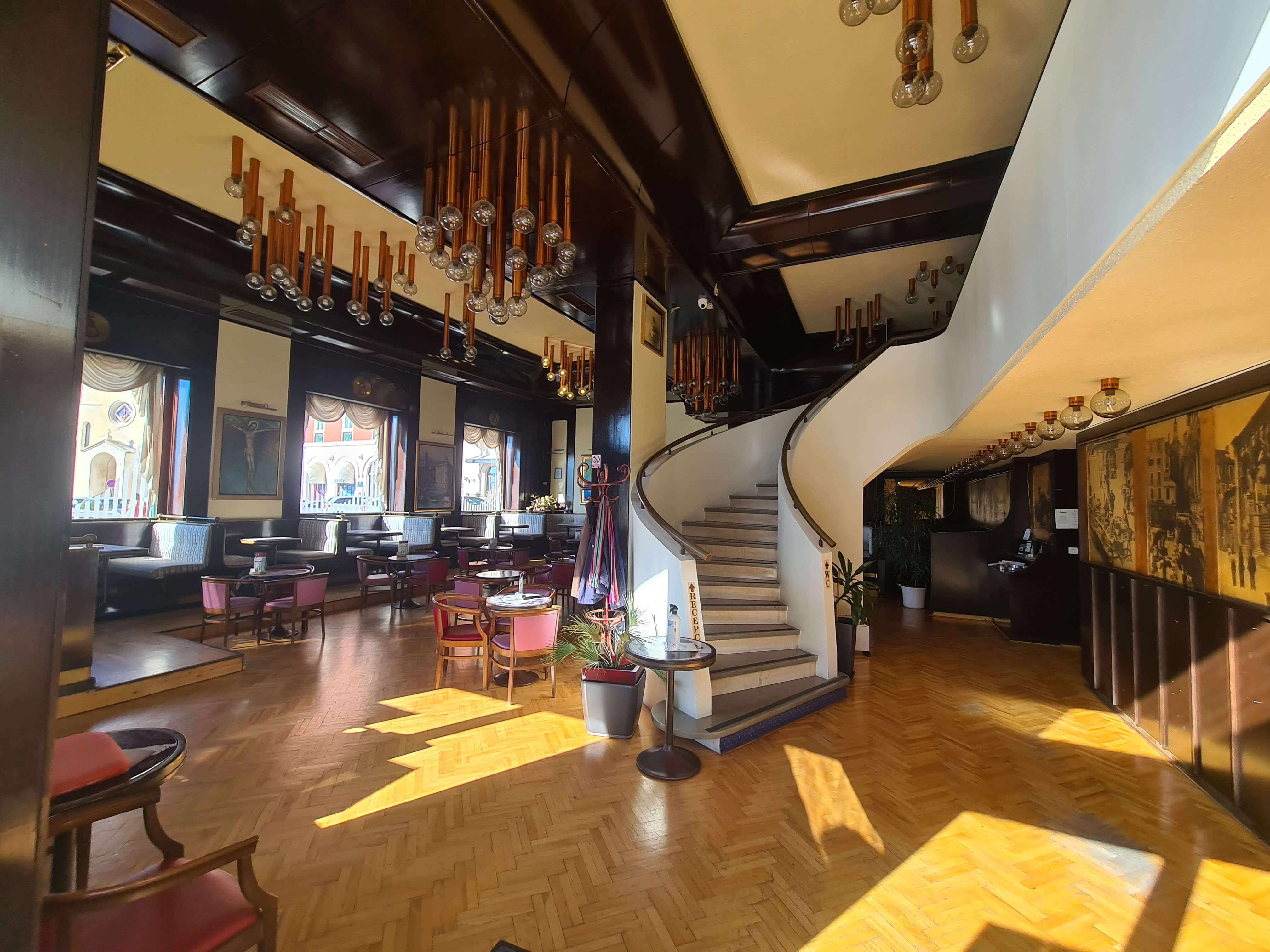
- Basket
Basket was opened in 1973, and it is one of the most unique cafes in Split. It was opened by Josip Gracin and today it is run by his son Tomislav. It is located in the Ulica Domovinskog rata 42. Depending on when you come to Basket you will find two different forms of this beautiful place. In the morning and around lunch it is a perfect cafe to grab a coffee or do some work and it is usually not very crowded. In the evening, it is a different story, you will probably have trouble finding a spot and especially in their booths which are everyone's favorite spot. What is more, music is a great advantage of this place, especially if you know that the owner Tomislav is a musician. Music is also different in the first part of the day and then it changes as the day goes by accompanied by sporadic live performances.
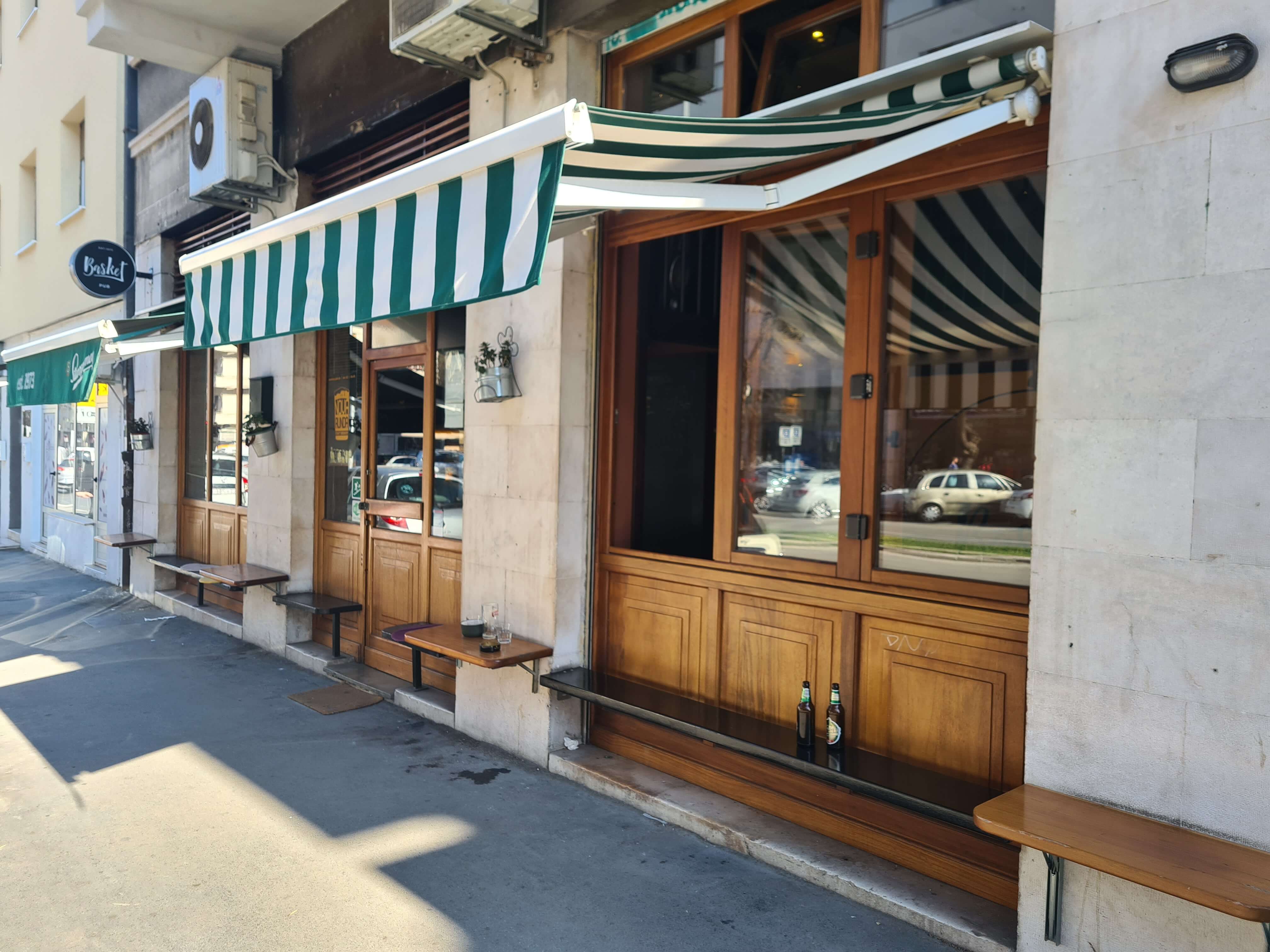
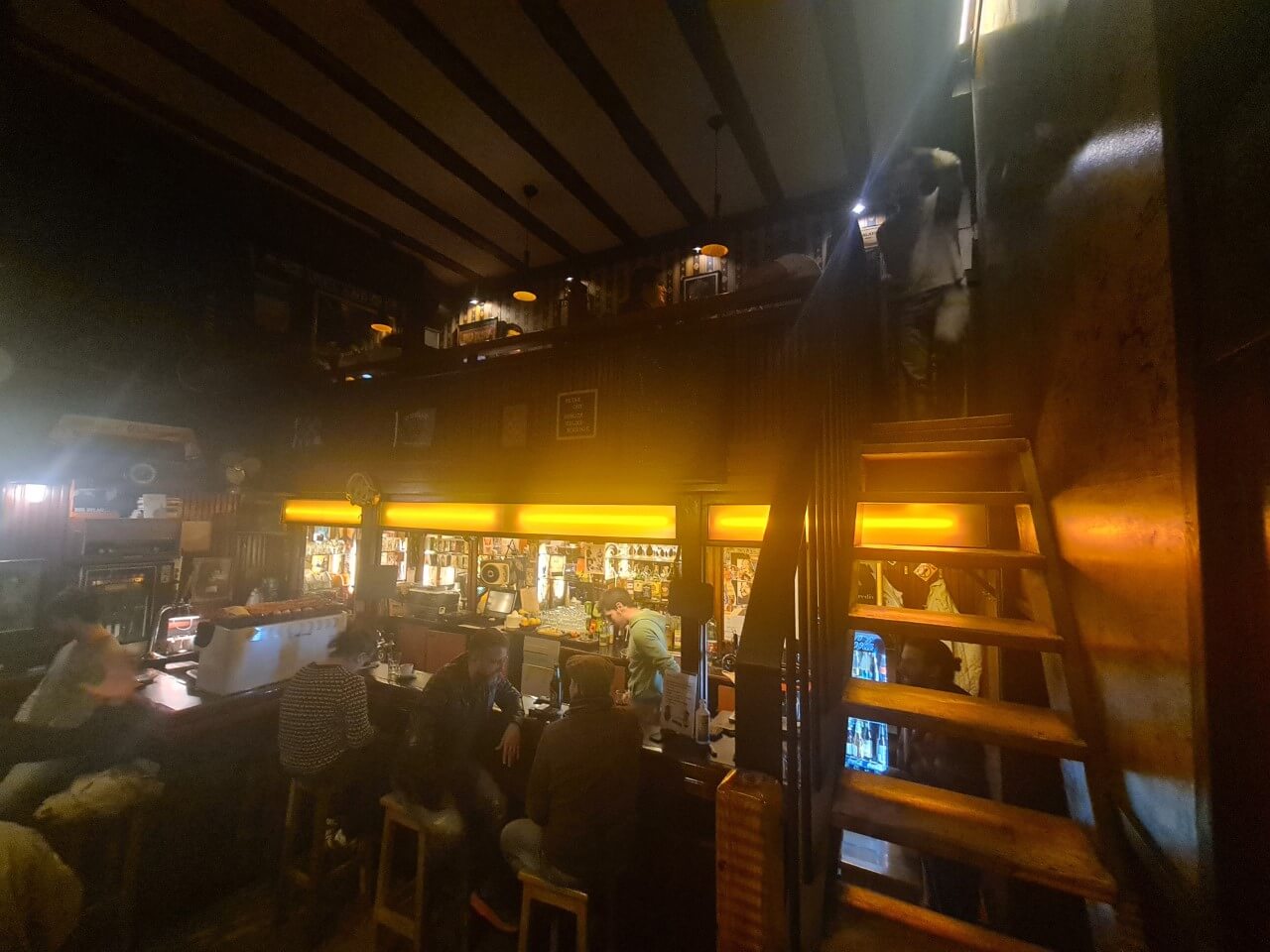
- La Linea
La Linea is one of the oldest pubs in town. Split citizens still call it by its old name Taverna. It is located behind the old city hall (Stara Gradska Vjećnica) near the city square Pjaca. It is a great spot for both morning coffee and an evening drink.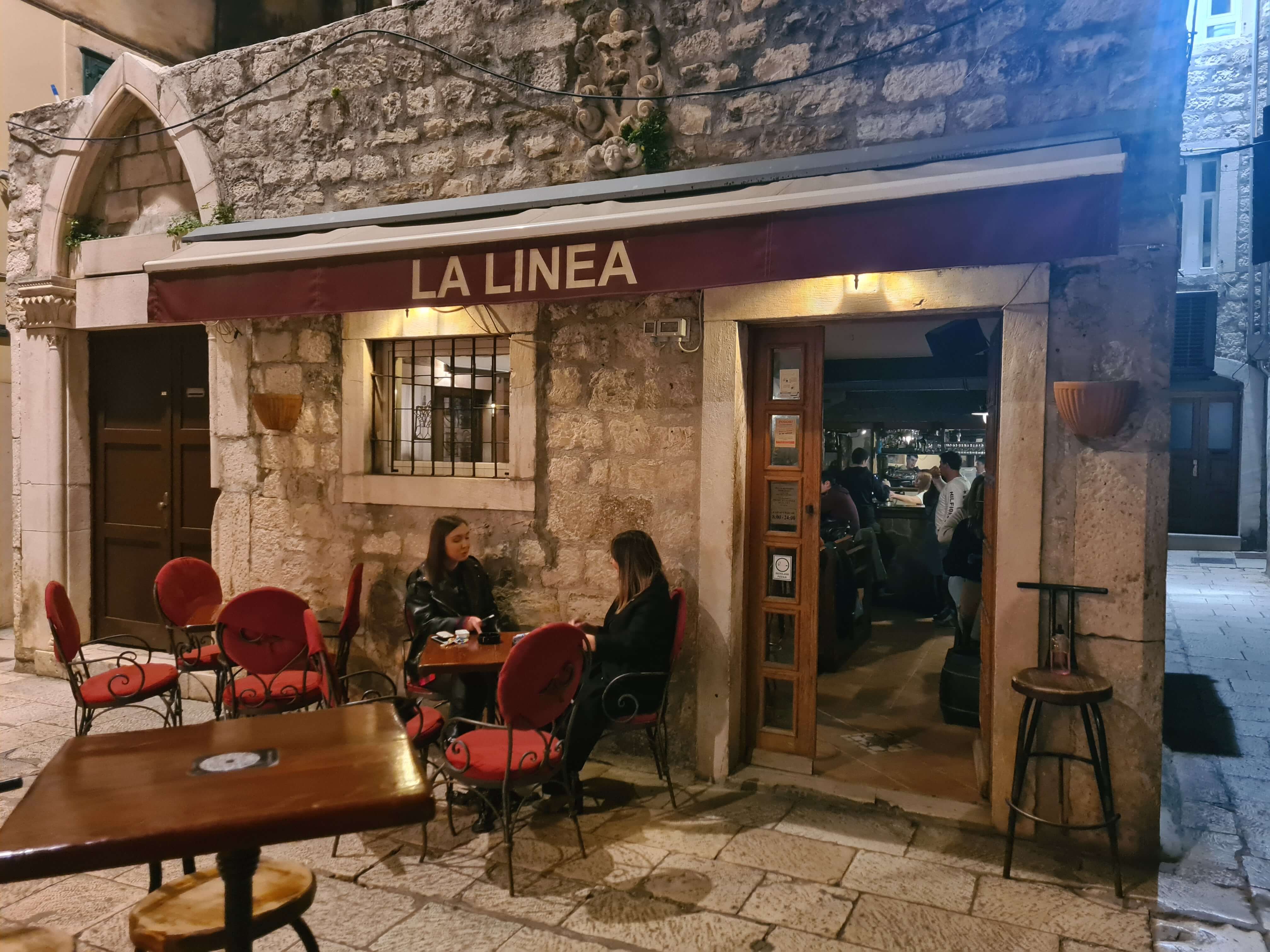
- Ave
Ave is located inside Diocletian's Palace at Rodrigina Ulica 4. It got its name after a famous roman salutation. It is run by the Matijašević family. It was first opened as a whiskey bar in 1989, then it was an apartment for a short period and in 2019 it was returned to its former glory. This cafe has a great choice of music, a cool interior and at the back of the place, there is an astonishing arch that will take you back to ancient times.
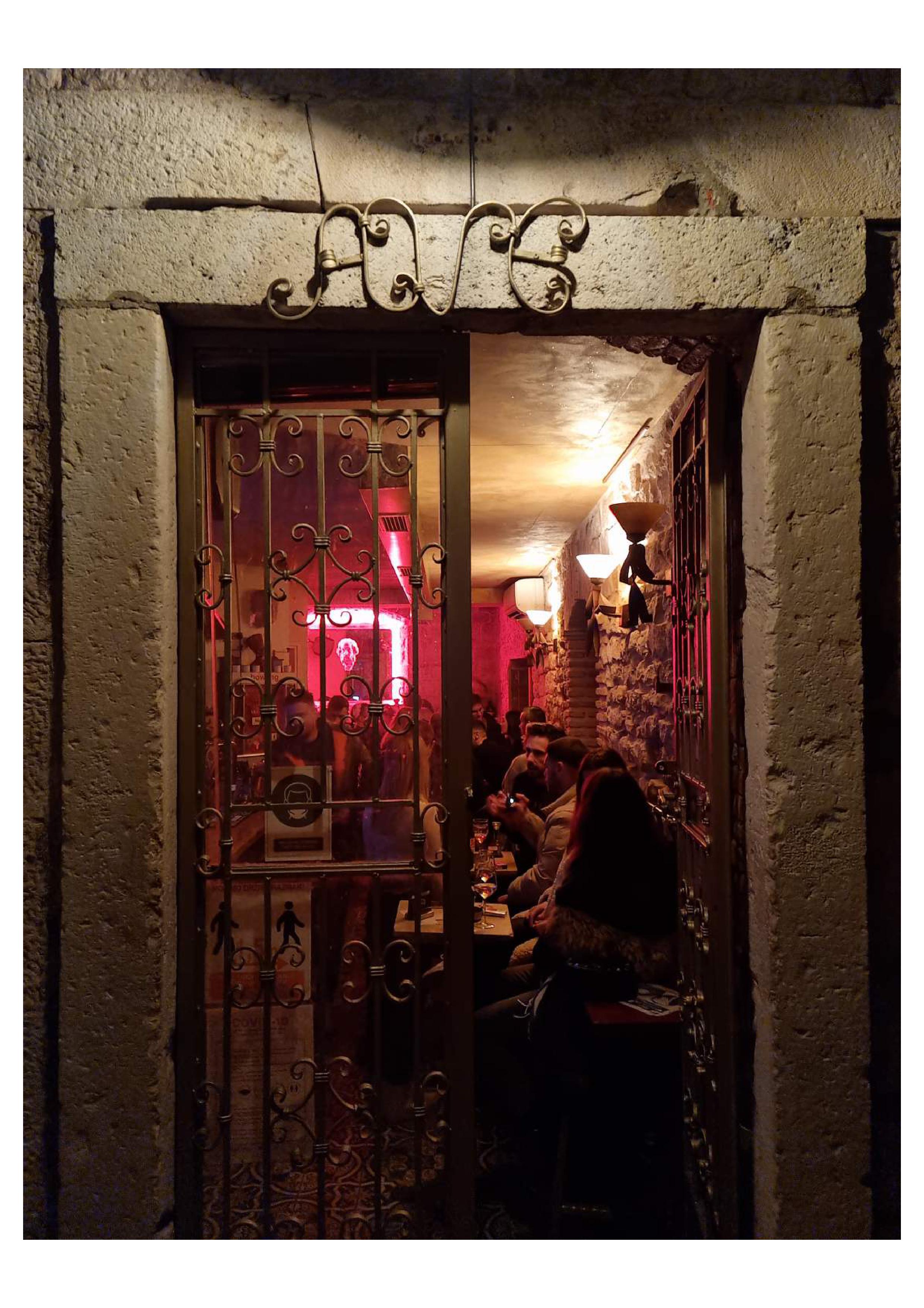

- ST Riva
There are numerous cafes on the Split Riva, but this one is special. ST Riva has a small and very narrow terrace which is located just above Split Riva. From their terrace, which is the soul of this place, you can enjoy a view over the Riva and Split Harbour. Locals adore this place, but it is not always easy to find a spot so be prepared.
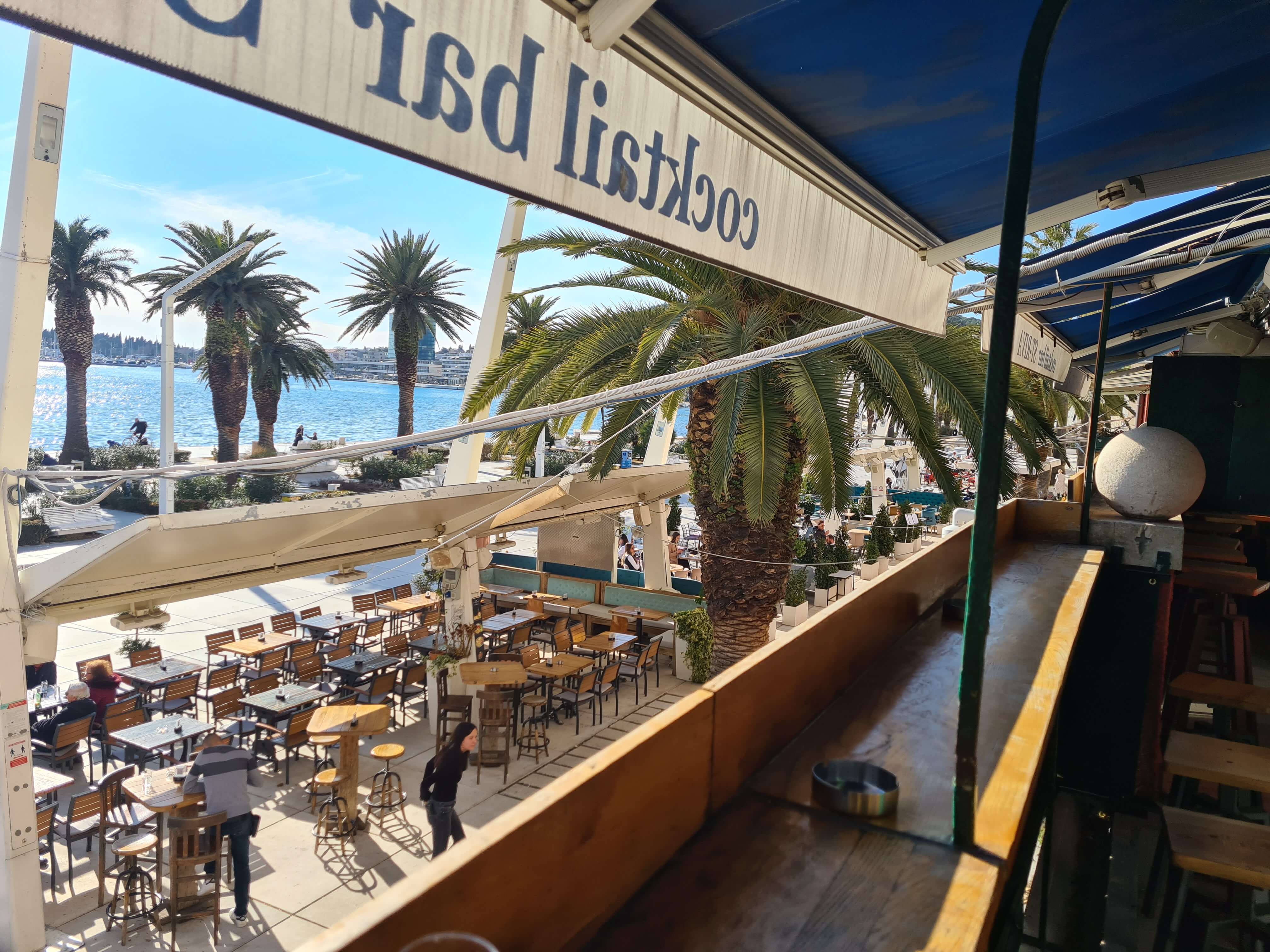
- Zalogajnica Dioklecijan
Zalogajnica Dioklecijan, otherwise known as Tri Volta, is one of the oldest taverns in the city center and even more in the Diocletian Palace. At Tri Volta, you can find local delicacies such as "pršut" and "bakalar" among many others. What is more, you can also come there for an evening drink such as beer or local wine as well as morning coffee. The place is filled with locals and it has a distinctive charm that is very rare to find in the center of Diocletian's Palace.
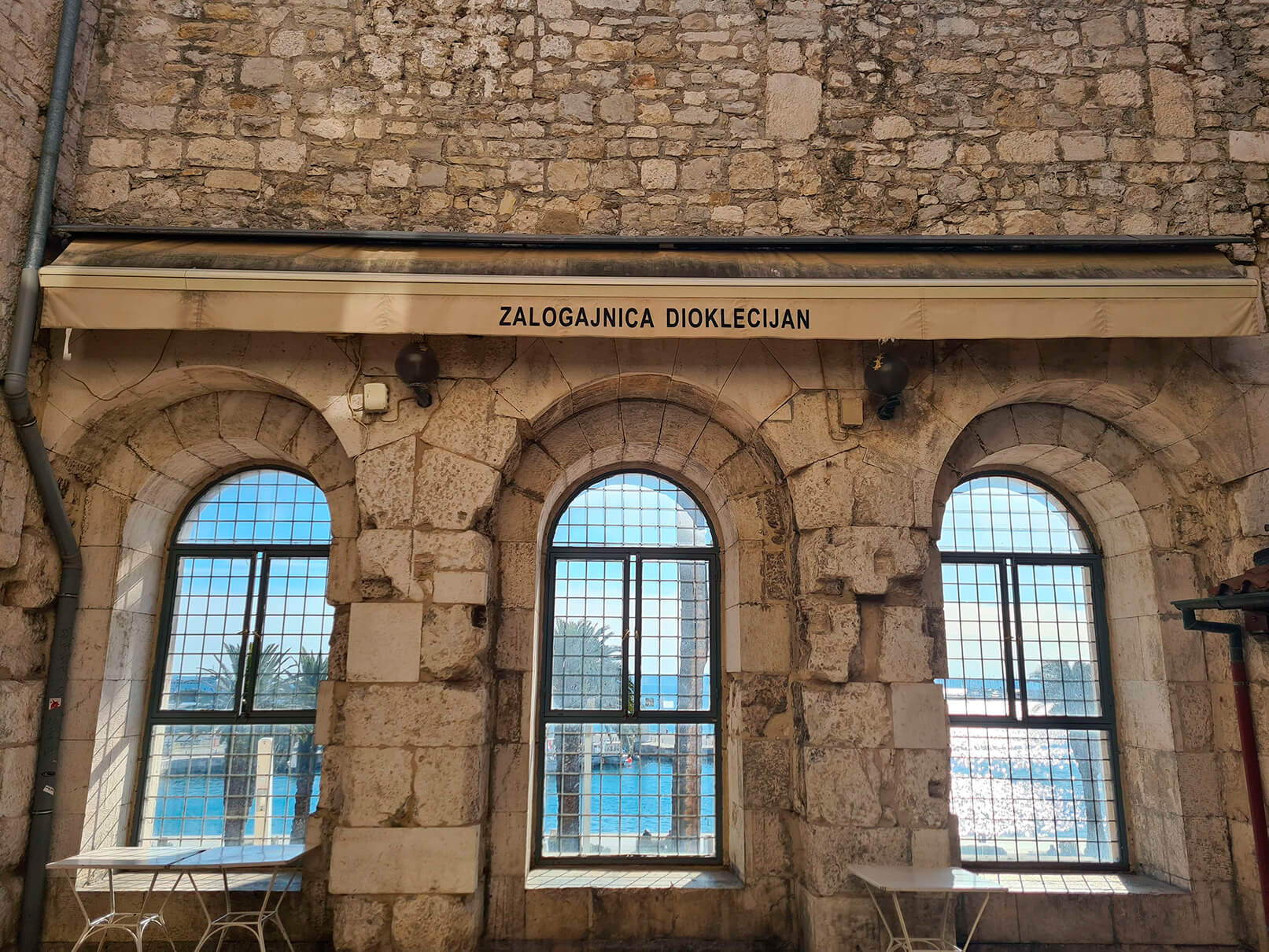
- Vidilica
Vidilica is located corner of Marjan, just above the famous split neighborhood "Varoš". It has the best view of all of the cafes on this list. From there you can see the panorama of the whole city and the surrounding islands. It is at the very start of the Marjan hill so after grabbing a coffee you can also take a stroll and enjoy nature.
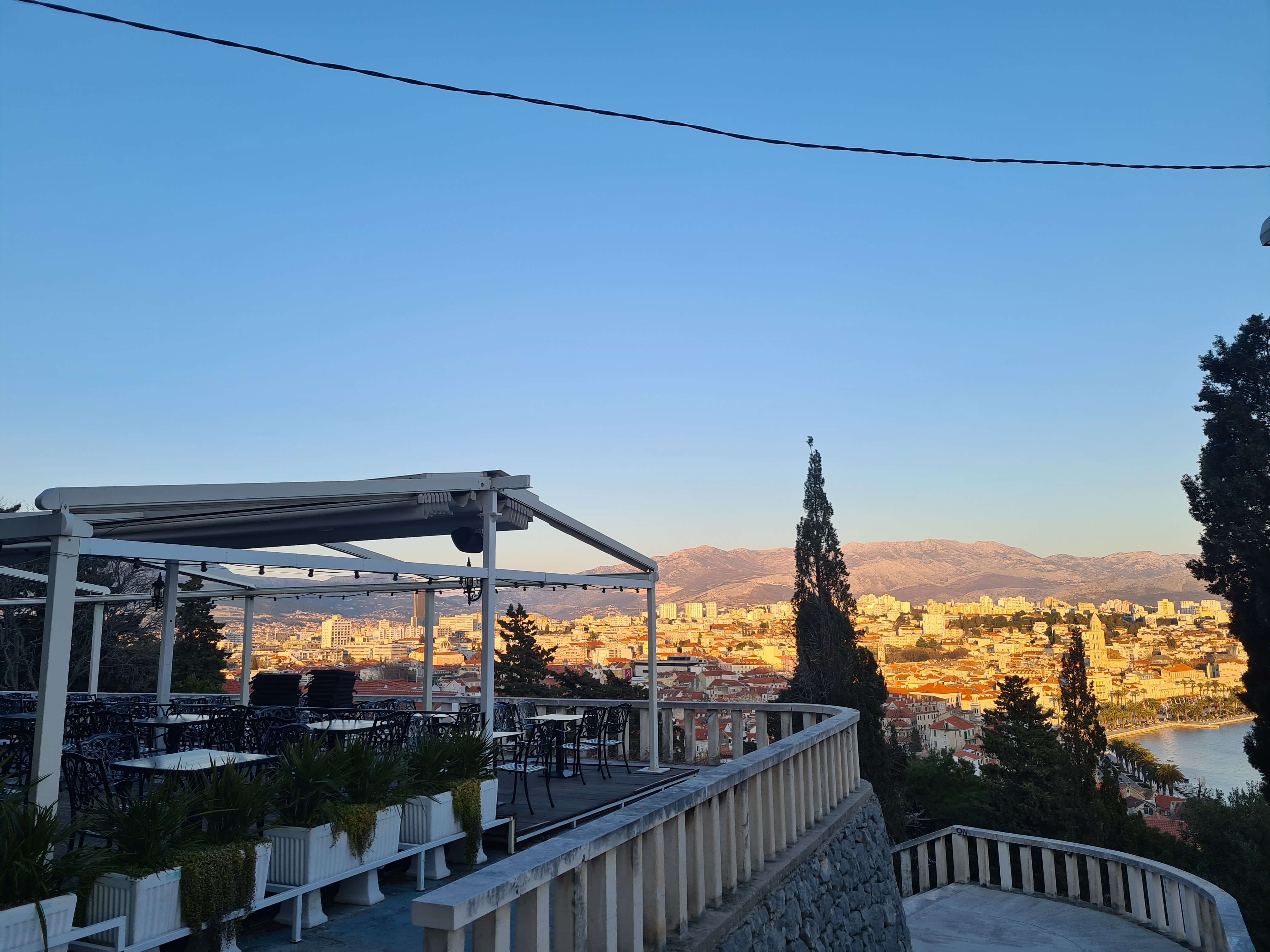
- Žbirac
Žbirac is the most famous cafe on Bačvice beach. It is has a great view of the Bačvice beach and you can grab a drink there before going for a game of “picigin”. This place has also a great advantage in that it is in the sun most of the day which is a very important factor to every "Splićo".
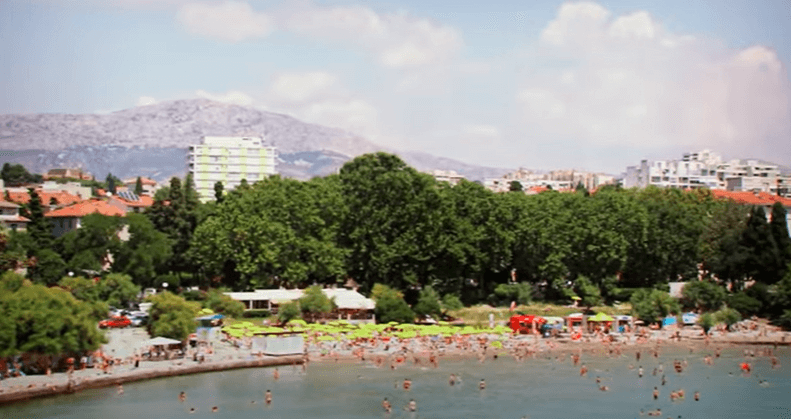
- Academia Club Ghetto
Ghetto is located in the city center and even more importantly in Diocletian's Palace. It is a very authentic place, it has two floors and is quite modern but rarely seen interior design. What is more, it has a large garden and is often a host for many different artists and performers. It is hard to describe the atmosphere that this cafe offers, but to keep it short they emphasize alternativeness, freedom of thought, and hospitality for everyone.
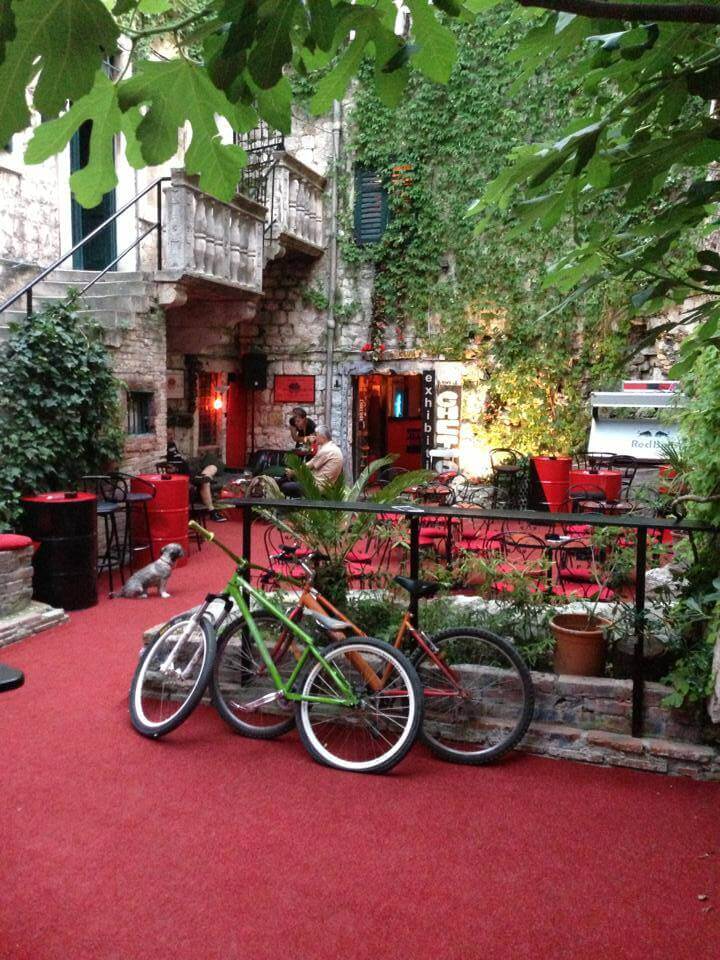
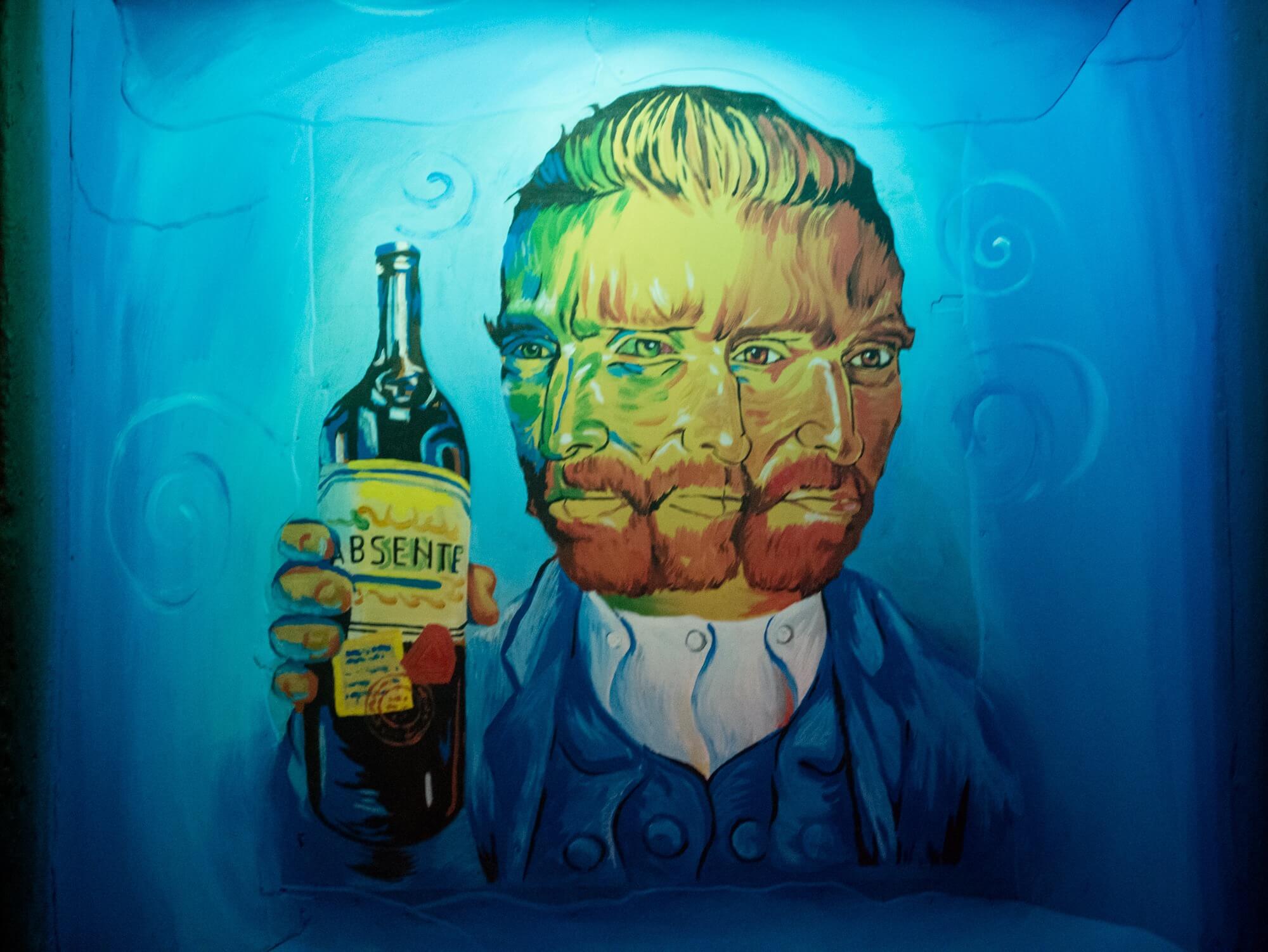
- Teak
Teak is a long-standing cafe in the city center. It is located near the Silver Gate entrance of Diocletian's Palace. It has an outside terrace as well an indoor place with a subterranean level which is quite a refreshment in the summer months. As they are situated right on the northern walls of Diocletian's Palace, their interior will astonish you with elements from the original Palace.
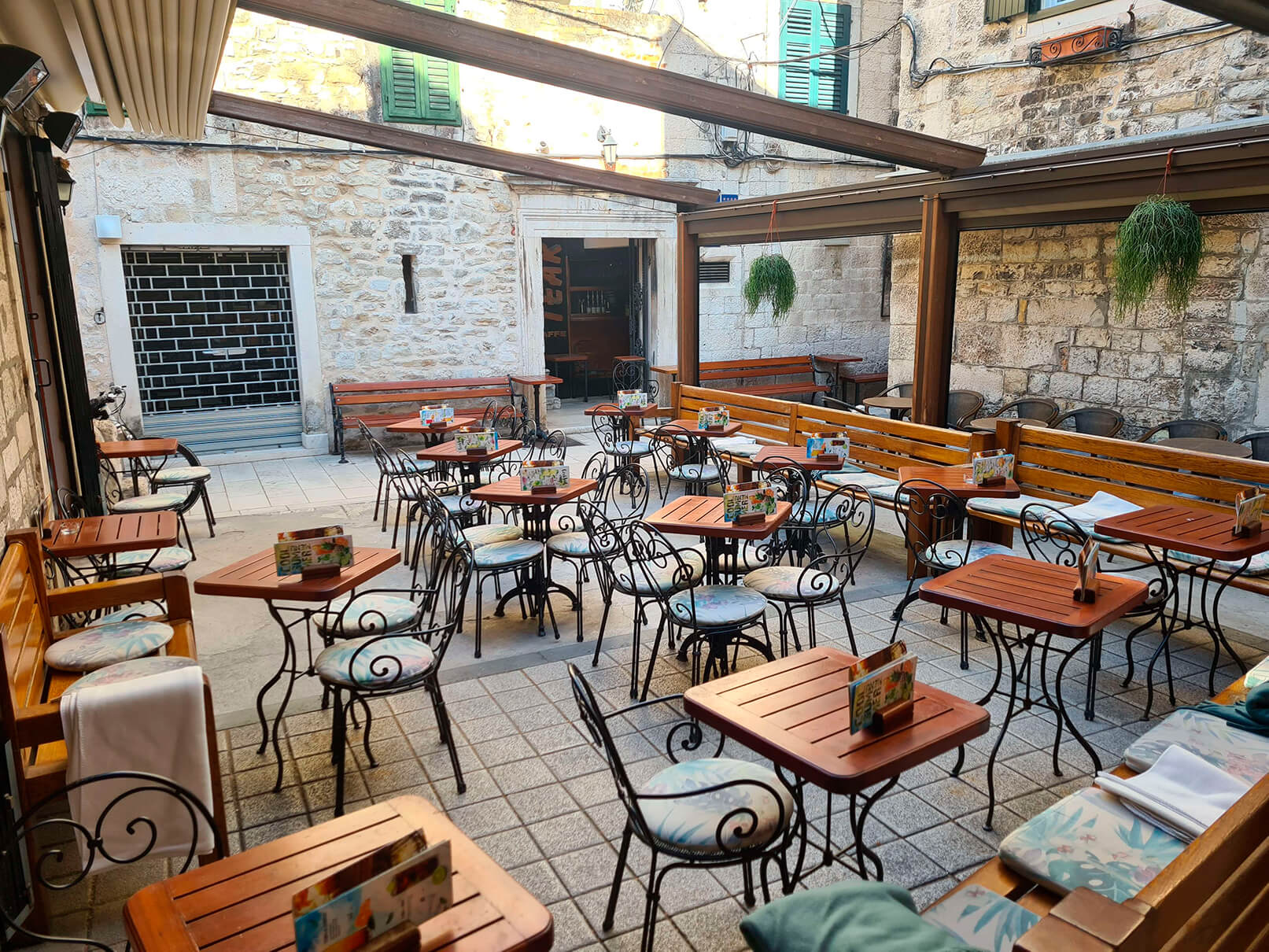
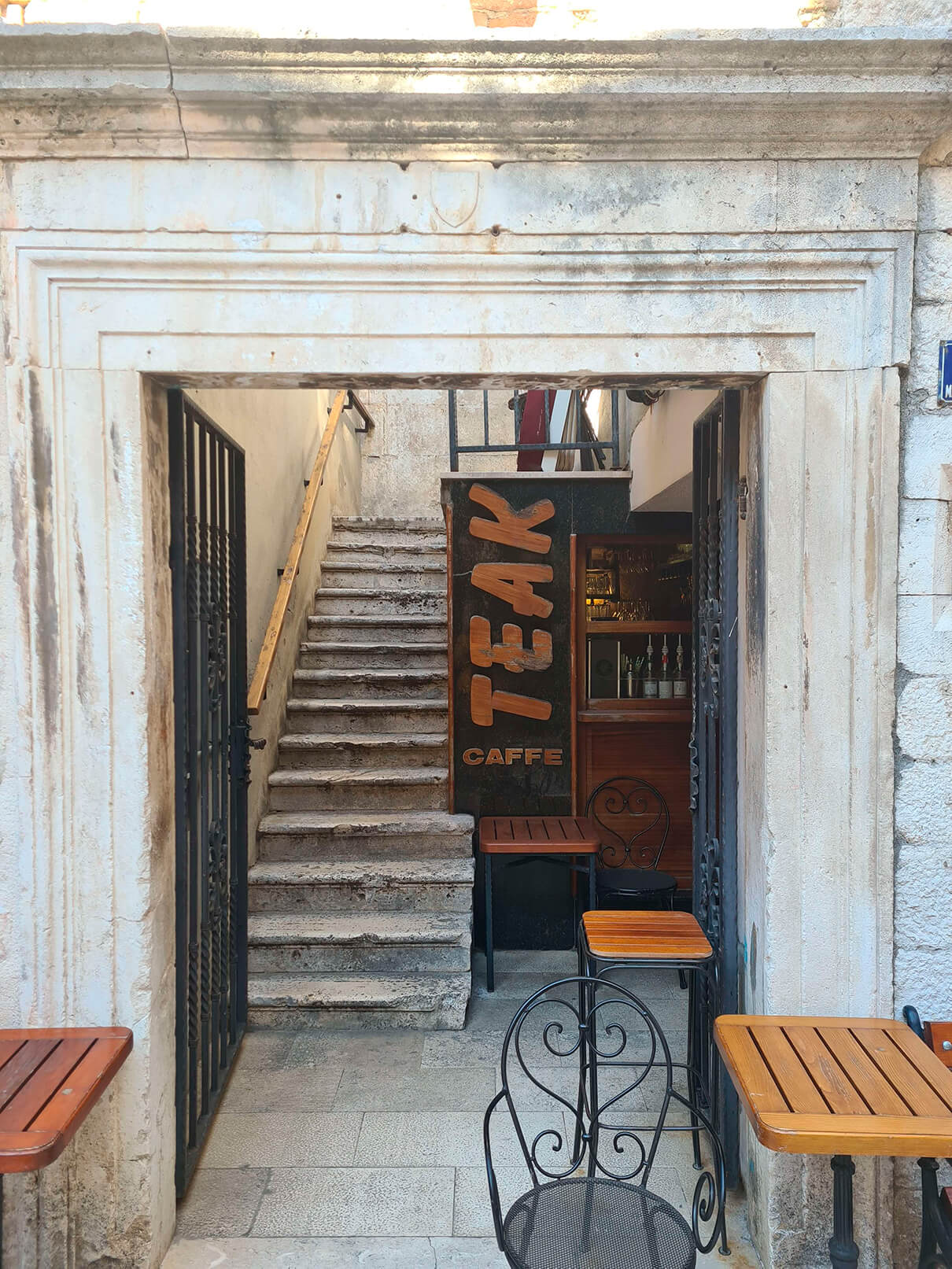
- Talog
Talog is the cafe located inside the Croatian National Theater building (HNK). It can be reached by entering HNK's back entrance. It is home for all the artists that work in the theater as well as outside guests that know about this hidden cafe. 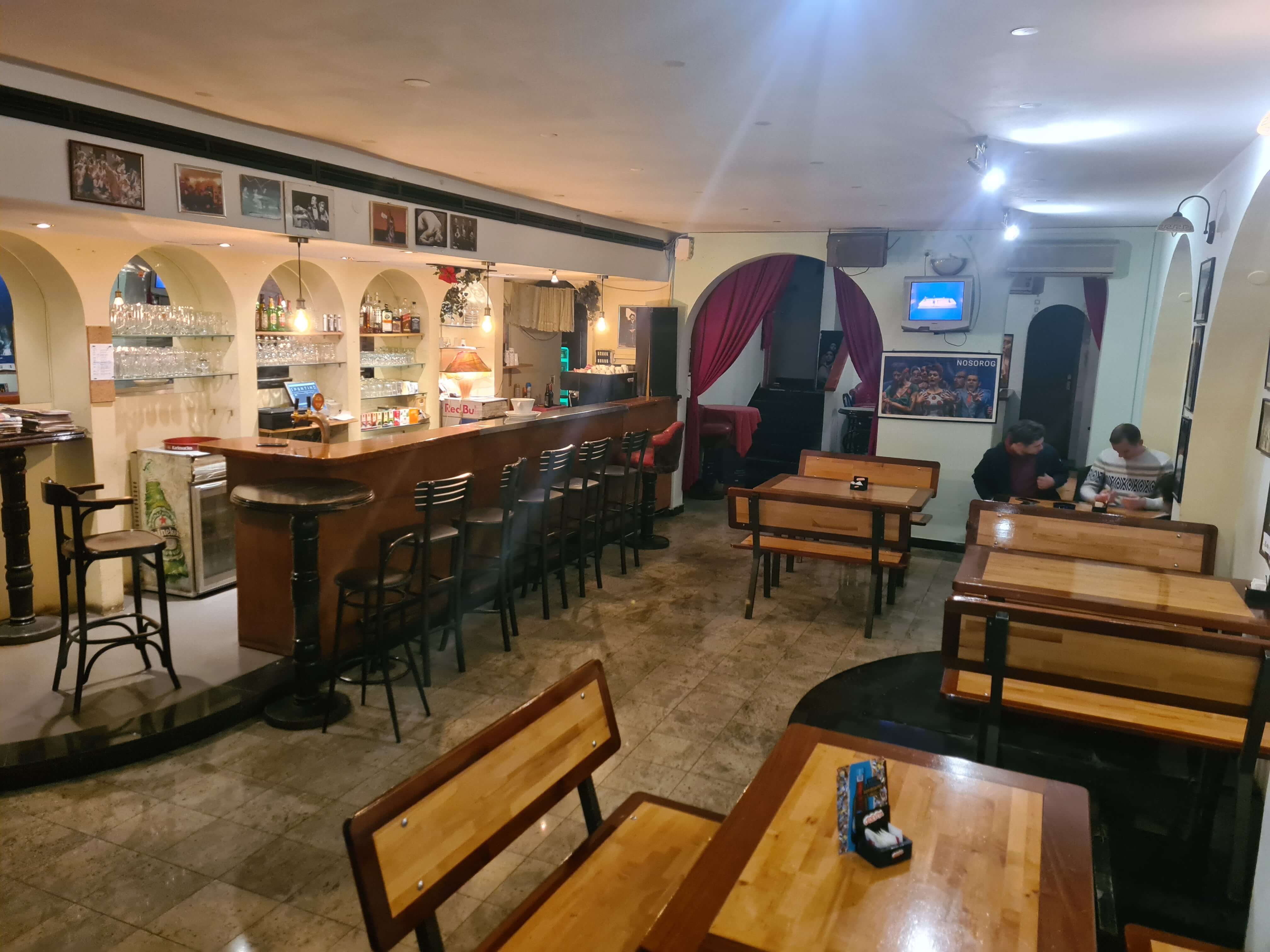
- Street
Street cafe bar is one of those hood cafes which was established in 1994. It has a small garden in front of it which is a great place to drink coffee in Spring and Summer. On a building near the cafe, you can see graffiti with a girl on roller skates which is an advertisement for the same cafe.
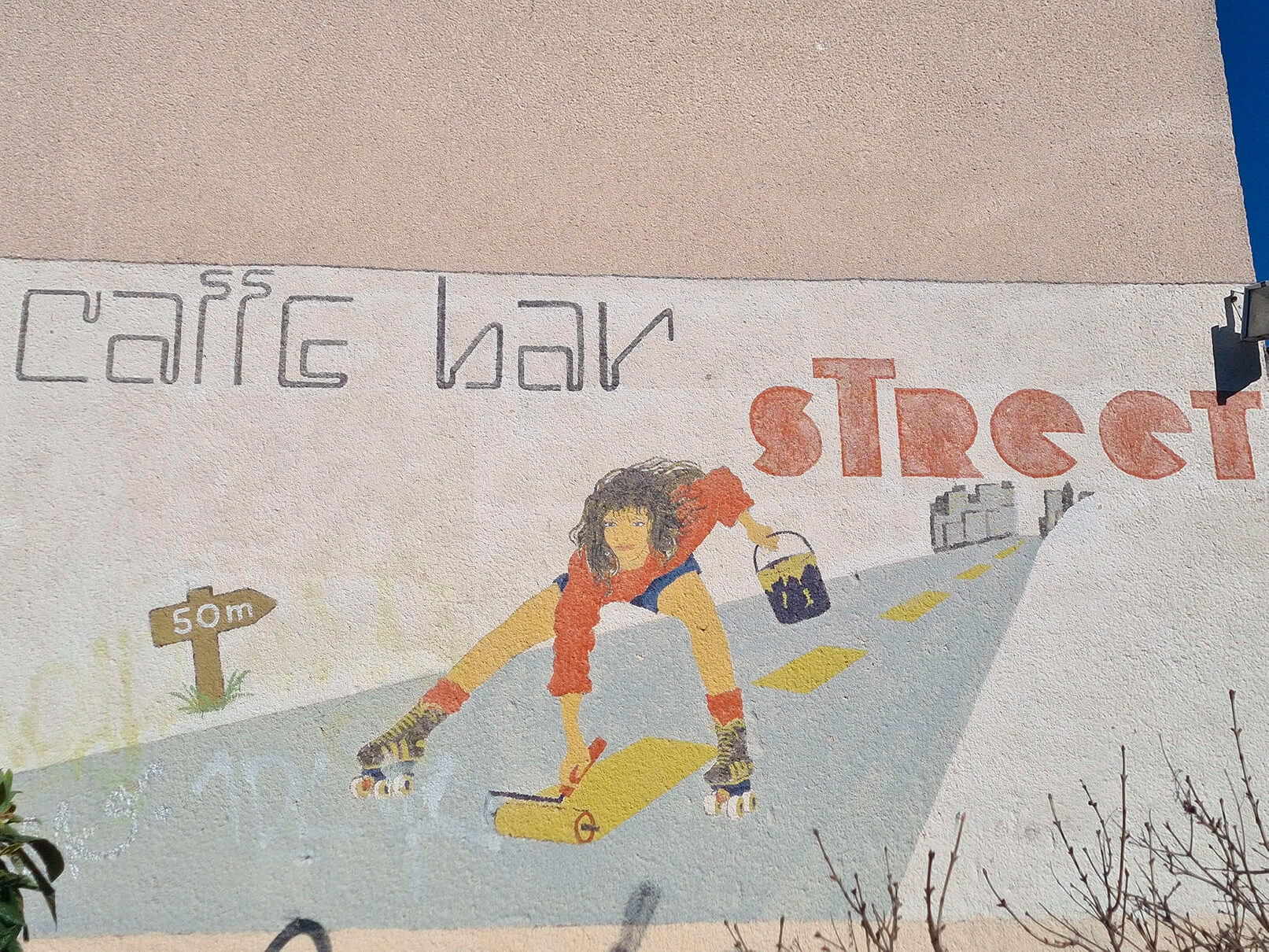
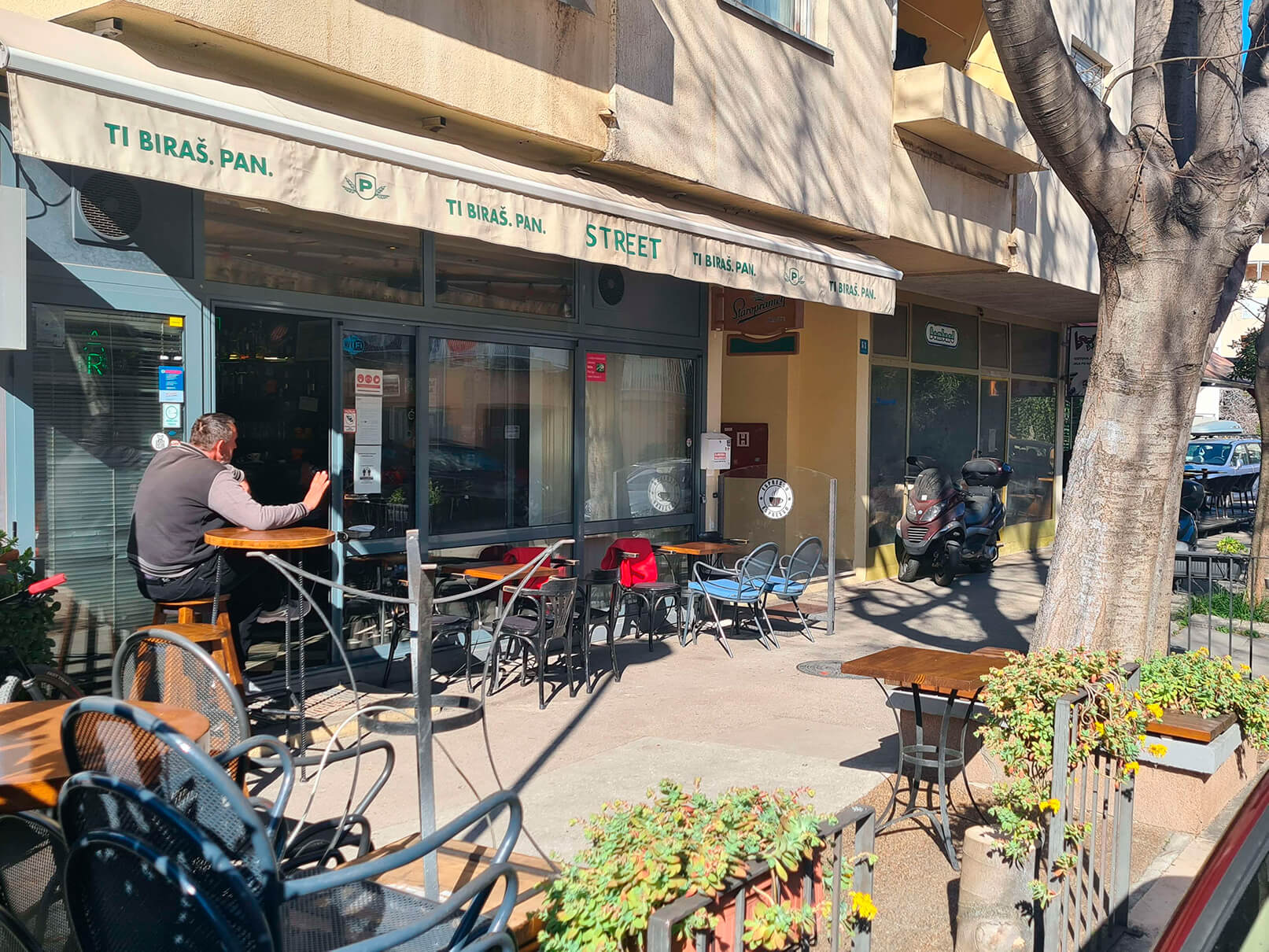
- Splash
Splash is a cafe located near the city park "Đardin" and at the corner of the Diocletian Palace. The main thing that characterizes this place is the love of metal music and you will figure that one the moment you step in. It is always filled with locals and the atmosphere is never dull.
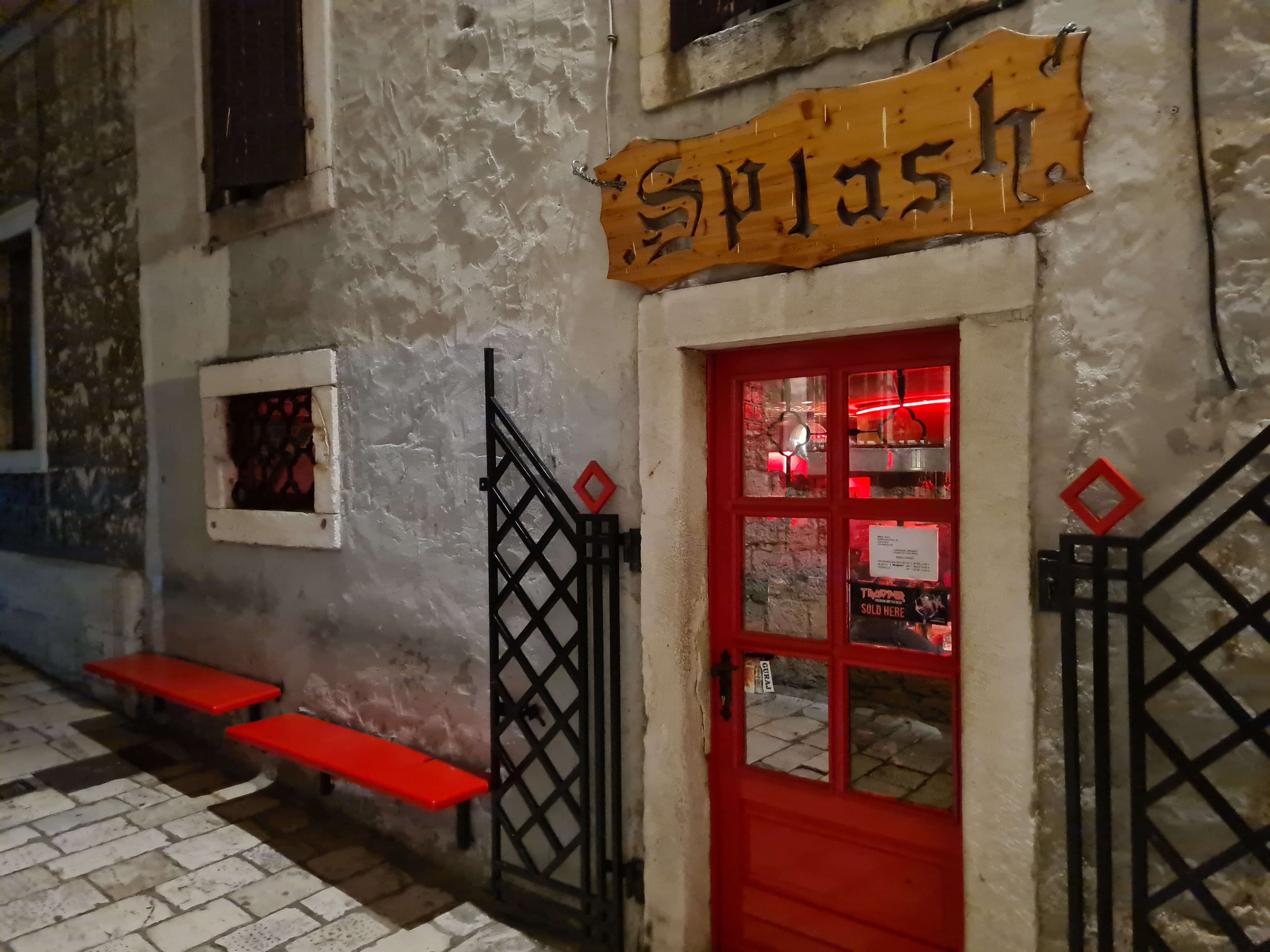
Countries often have cheese roads, wine roads, and many different forms of tourism paths that connect some gastronomical offers. Given the number and diversity of cafes in Split, we could probably design a cafe road
The Split catering scene has completely changed with the touristic boom that occurred in the last decade or so. There are numerous new cafes and bars, but these are usually avoided by locals. The point of this article is to spread the word about authentic cafés that are still predominately visited by locals and which work the whole year-round.
For more, check out our lifestyle section.
Croatian Cup Semifinal: Hajduk Tops Gorica for Spot in Final (2:1)
March 2, 2022 - The first Croatian Cup semifinal match was played tonight at Poljud Stadium in Split between Hajduk and Gorica, with Hajduk winning 2:1 for a spot in the final on May 26 at Poljud!
Hajduk was a big favorite in the semifinal match against Gorica, which has just suffered five Championship defeats. Hajduk suffered a heavy 3:1 loss to Rijeka in the Croatian First League derby on Saturday.
Since the final is too being played at Poljud, Hajduk fans expected a victory against Gorica and a spot in the final.
Gorica has thus far led head-to-head, with eight wins with five defeats, but has lost two of three games against Hajduk this season.
Lineups
Hajduk: L. Kalinić, Mikanović, Katić, Elez, Melnjak, Grgić, Fossati, Sahiti, Biuk, Livaja, Mlakar
Gorica: Kotarski, Jovičić, Steenvoorden, Mitrović, Babec, Kalik, Krizmanić, Pršir, Keita, Atiemwen, Dieye
Recap
Hajduk came out much more aggressively in the first 5 minutes of the match, pressuring the Gorica defense and goalkeeper. A Livaja cross in the 5th minute was a top chance for Hajduk, with Stipe Biuk heading over the crossbar.
Gorica attacked well in the 8th minute before Hajduk countered and Sahiti just missed the goal.
Gorica had a chance in the 11th minute which was headed over the goal. Hajduk continued to press and a brilliant ball in from the right found Grgić's head which went just over the post.
Sahiti tried shooting from the left-wing but it was an easy save for the Gorica keeper. Livaja danced around the Gorica defense in the 16th minute but hit wide of the goal. Gorica had an unsuccessful counterattack two minutes later.
Hajduk had two of their best opportunities in the 20th minute but both were saved by Kotarski.
Gorica held possession for the next few minutes and managed a shot off which went wide of the Hajduk goal.
A quick 1-2 in front of Kotarski's goal found the boot of Grgić who had another stellar opportunity for Hajduk but his shot was also wide.
Gorica seemed to only pressure thanks to quick counterattacks but nothing was dangerous. Their first corner came in the 29th minute.
In the 32nd, Mikanović sent the ball in to Liivaja who found the back of the net, but VAR ruled the goal offside.
However, it didn't take long for Hajduk to get their goal. Melnjak scored for 1:0 in the 39th minute!
A Hajduk free kick right outside the box was awarded 2 minutes to go in the half - and Marko Livaja hit the post!
Hajduk had 57% of the possession in the first half and 8 shots on goal to Gorica's two.
The second half started without any changes on either side.
Hajduk's attacking game continued in the first 8 minutes of the second half. Gorica had their first shot at the keeper in the 53rd minute. Gorica's first corner of the second half came two minutes later.
Gorica had their best chance of the match in the 57th minute when Pršir shot just wide of Hajduk's goal. A potential penalty for Hajduk was checked by VAR in the 60th minute but was ruled out.
Just a few minutes later, Livaja's free kick outside the box found the head of Melnjak for 2:0 in the 64th minute!
Stipe Biuk was subbed off for Nikola Kalinić in the 66th minute.
Gorica subbed Dieye for Cruz and Brbec for Suk in the 70th minute. Hajduk made changes two minutes later - Sahiti was subbed off for Atanasov and Mlakar for Ljubicic.
In the 79th minute, Gorica subbed Mitrovic for Musa and Suk for Golubickas.
A mistake in Hajduk's defense gave Gorica a corner in the 83rd minute though they were unable to get past Hajduk's defense.
Vukovic and Colina came on for Grgic and Melnjak in the 86th minute. The ref added 5 minutes of stoppage time.
VAR awarded a penalty for Gorirca in the final minutes which Kalik scored for the final 2:1.
Gorica was unable to get past Hajduk's defense for another goal, giving Hajduk the 2:1 victory and spot in the Croatian Cup final! Rijeka and Osijek will play in the second semifinal on March 9. The final is on May 26 in Poljud.
Only one game is played in the Croatian Cup semifinal, and if there is no winner after 90 minutes, extra time is played and then penalties.
To read more about sport in Croatia, follow TCN’s dedicated page.
"Ash Wednesday" Begins Lent: Food Eaten in Time of Penance in Slavonia
March 2, 2022 - Wednesdays normally do not have a particular meaning but for Catholics, today means the start of Lent, which is a time for mourning, renunciation, and penance. Food is light, “sacrifices” are made, and forty days until Easter has begun. A look into what Slavonians eat during Lent.
If February in Croatia is known as a month of handful feast food, the month of this year’s March represents “sacrifices” Catholics are willing to take to “cleanse” themselves before Easter and the resurrection of Jesus Christ. Those sacrifices usually involve food - no meat, sweet desserts, and other types of food we love the most. Today's Clean Wednesday or “Ash Wednesday” marks the so-called commanded fast, which means strict fast requirements as a symbol of Jesus’s sacrifice during time spent in the desert before his eventual resurrection (Easter). Its name “Ash Wednesday”, comes from the rite of cremation, when priests sprinkle ash on the heads of the faithful or, according to the customs of the region, make the sign of the cross on their foreheads with ash. Sprinkled ash used on these rites is last year’s olive twigs blessed on the Palm Sunday (Cvjetnica) - a feast that commemorates Jesus’ entry into Jerusalem.
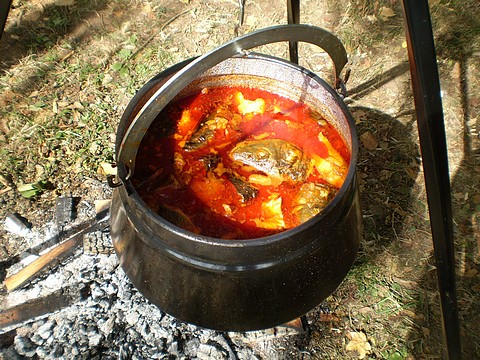
"Fiš" - traditional Slavonian food. (Najbolje u Hrvatskoj by vikendplaner.info)
But enough of that, let’s get to the most important point of this article. Food. Because of everything mentioned, people needed to find ways to eat food that would match the requirements Lent demands. Of course, the diet of the people differed both because of preferences and differences of working classes. The most popular Lent dish is definitely Fish stew (Fiš-paprikaš or in Slavonia just Fiš). No holiday of this kind in Croatia can pass without fish stew. It is so popular and an integral part of the Slavonian culture that competitions are regularly held throughout Eastern Croatia (Fišijada), for the title of the best "fiš” makers in the region. As its name suggests, the fish stew is prepared from fish, especially river fish which means it is common in regions where rivers are of great importance. It is believed that it was brought to the Slavonian area by immigrants from southern Germany, whereas Baranja got their “fiš” from Hungarians that inhabited that area. Fish stew is traditionally prepared in a copper cauldron hung over an open fire. Water is put into the cauldron with sliced pieces of river fish such as catfish, carp, pike or perch, and (a lot of) onion, and everything is boiled together on the fire. Just before the fish is cooked, spices are added to the water to give stew its characteristic color and spiciness. It is, of course, ground sweet and hot paprika which is often used in Slavonia and Baranja. The “fiš” is usually cooked for twenty more minutes with the addition of other ingredients like salt, tomato sauce, and more and in the end, it is served with homemade noodles and special homemade bread.
Nevertheless, every Slavonian family has its own recipe so it's hard to pinpoint a perfect one, however, it brings even more charm and beauty to this traditional dish. Families with less usually cook “fiš” with only one type of fish, mostly carp and catfish.
River fish is also really healthy, especially if it's cooked in the oven. It retains the maximum of useful components in the form of vitamins and minerals. Most importantly, the dish is simple enough and does not require inaccessible ingredients. It is usually served with potato salad which can vary, of course, depending on the household. Fried fish is also viable during Lent but strong believers are avoiding it for scarcer meals.
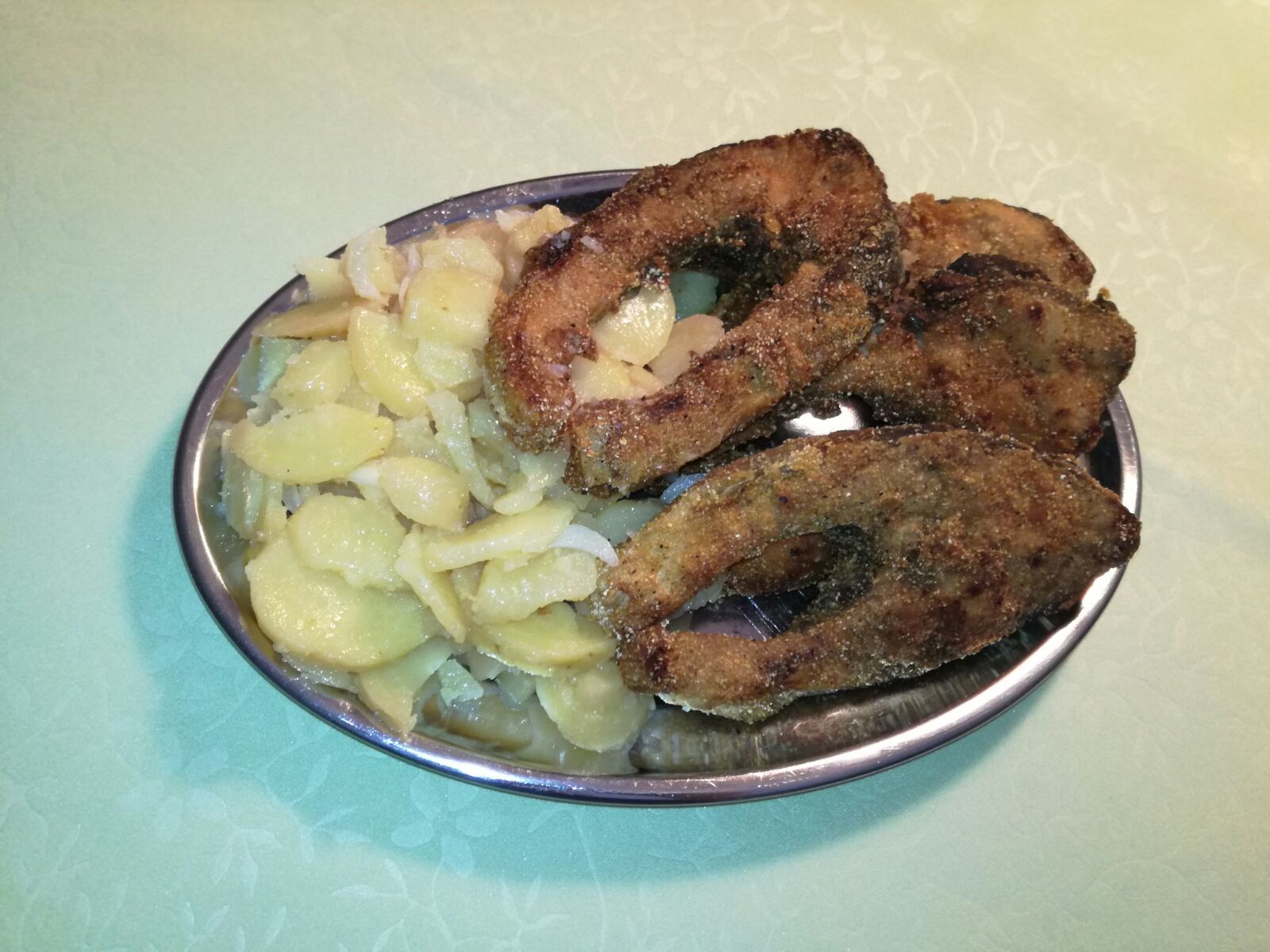
My aunt's fried carp with potato salad. (Private album/Dora Naletilić)
Homemade noodles are a close second in “popular Lent dishes in Slavonia” category. They are more of a side dish these days, however, poorer families who didn’t always have access to fish had to find ways to feed themselves. Popular dishes with noodles in Slavonia are noodles with eggs, semolina ones that are sweet and fall into the category of scarcer meals. However, the ones with potatoes are probably the most popular ones, in Slavonia better known as “granatir”. Cheap ingredients like noodles, onions, potatoes, and more, fed generations of Slavonians who didn’t have the luxury of buying fish and other too expensive ingredients for them.
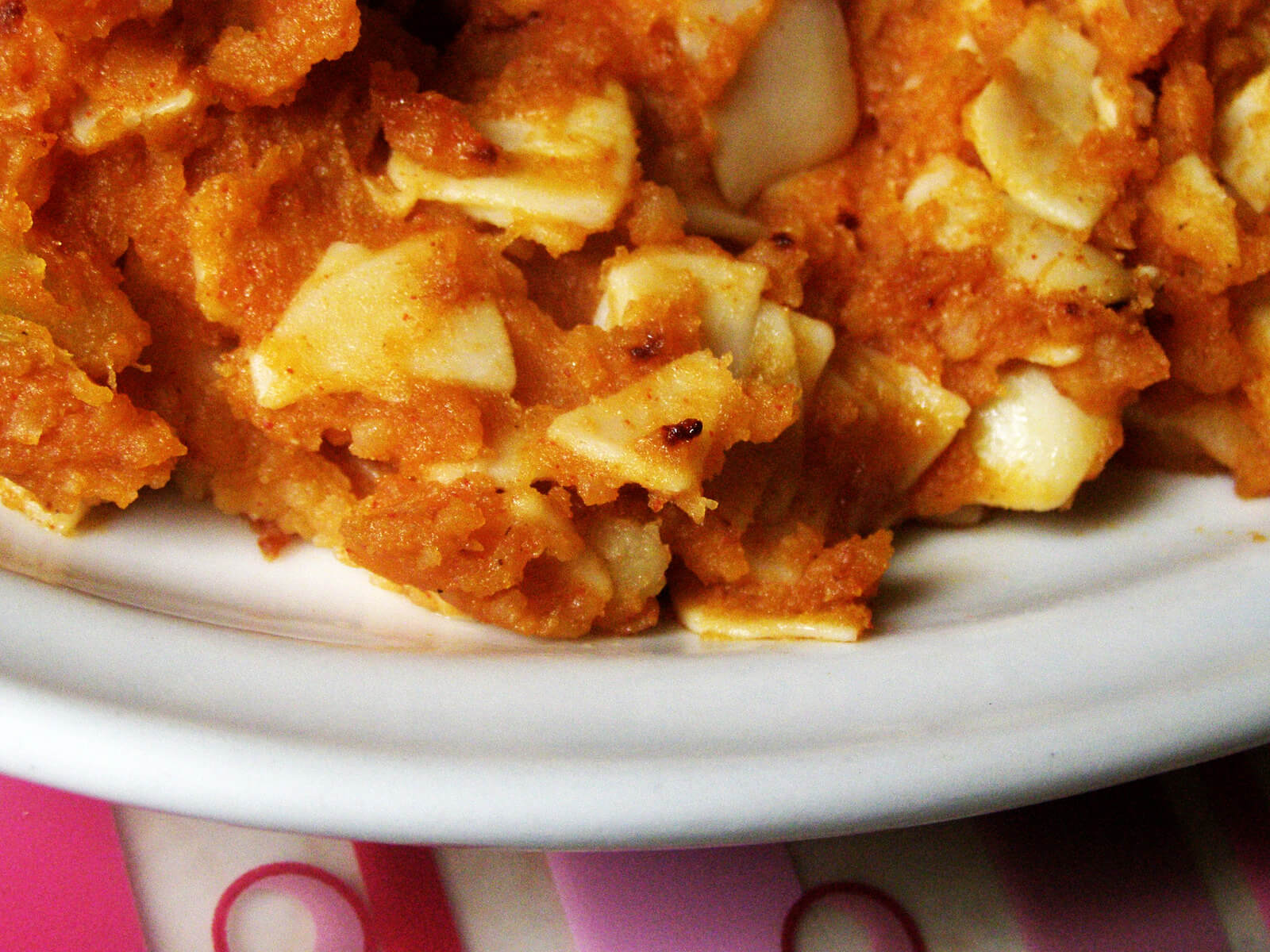
"Granatir" - noodles with potatoes. (Credit: Coolinarka)
Also, it is important to highlight that these dishes are made for one consummation a day so that people fasting during Lent experience penance.
As said at the beginning of the article, Lent has started and the time of “sacrifice” has begun. These times do not have the splendor of food, as usual, however, it only shows the resourcefulness of people during fasting and difficult times. Even though Slavonia is known for its heavy, meat-based food, these times, like Lent, show that this region is very versatile and can make a dish accessible to all. You don’t have to be a Catholic or even a believer to try these foods, just come and get into the spirit of Slavonia.
For more, check out our lifestyle section.
Weekend Food Festival Brings World Class Chefs to Rovinj This Spring
March 2nd, 2022 - The Weekend Food Festival will host some of the most renowned names in the world of gastronomy in Rovinj, Istria
The Weekend Food Festival is back in style this year! Known as the most original and attractive festival of its kind in Croatia, both educational and hedonistic, the event will take place in the spaces of the Old Tobacco Factory in the centre of Rovinj.
The best of the best, prominent food and wine experts from the region and beyond are about to gather in Rovinj from May 5th to May 8th, 2022.
Renowned names from Croatia and the world will share their knowledge, experiences, passion and enthusiasm with fellow professionals, caterers, winemakers, olive growers, foodies and food lovers eager for new discoveries and knowledge.
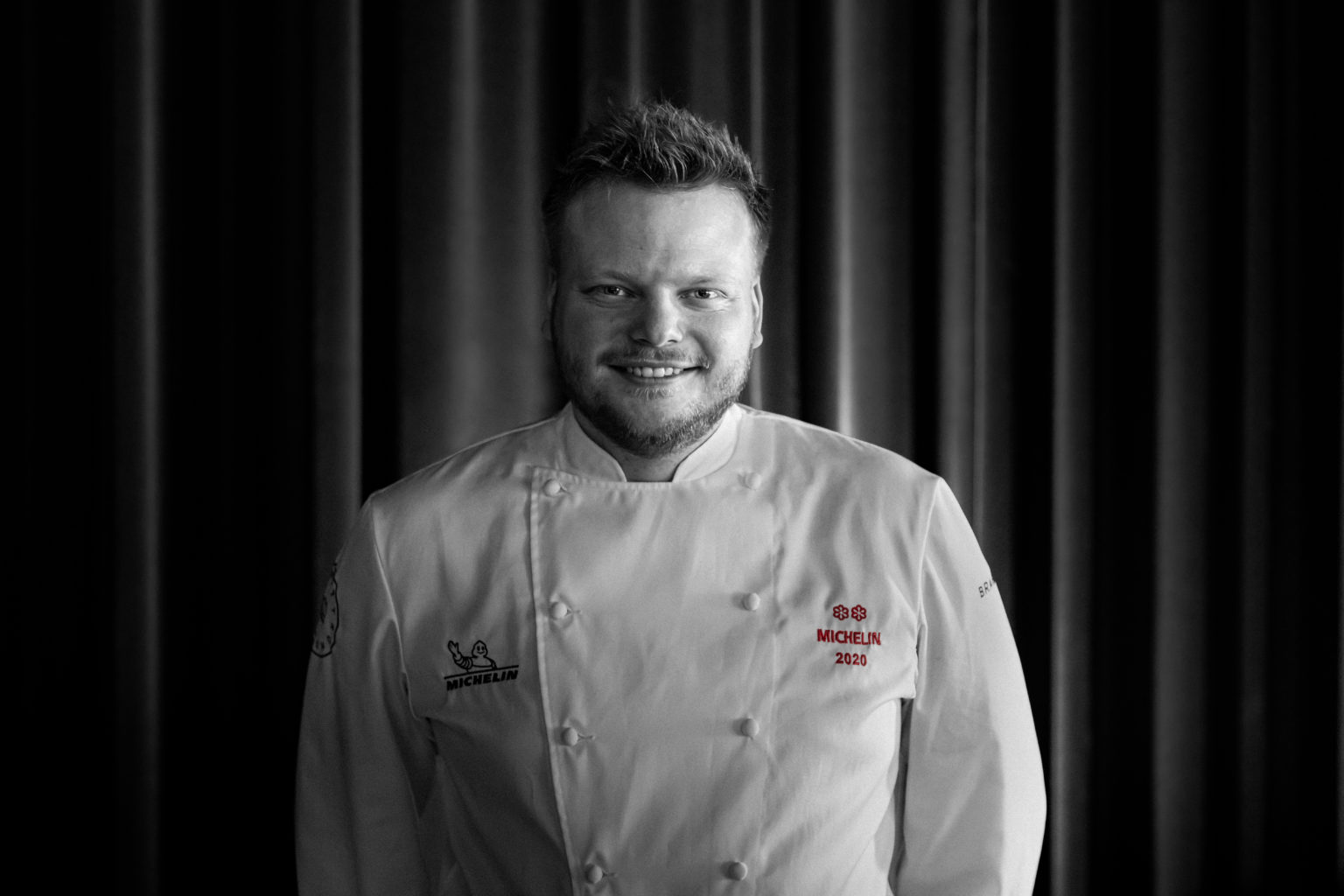 Rasmus Munk / Photo by Jon Angelo / Press
Rasmus Munk / Photo by Jon Angelo / Press
Numerous panels, masterclasses and accompanying events will provide opportunities not only for personal and professional development but also for the exchange of ideas and the opening of new perspectives and business opportunities.
Gala dinners, excellent wines, food and music guarantee that the Weekend Food Festival will be a place of good vibes and inspiring positive experiences.
Rovinj will host a number of top culinary stars from around the world, including chef Rasmus Munk from the Danish Alchemist, a restaurant with 2 Michelin stars that was named the best restaurant in Europe in 2021 by OAD; Sergey and Ivan Berezutskiy from Moscow’s Twins Garden with 2 Michelin stars; and Ana Roš, the 2017 best chef in the world whose restaurant Hiša Franko in Kobarid, Slovenia, also boasts 2 Michelin stars.
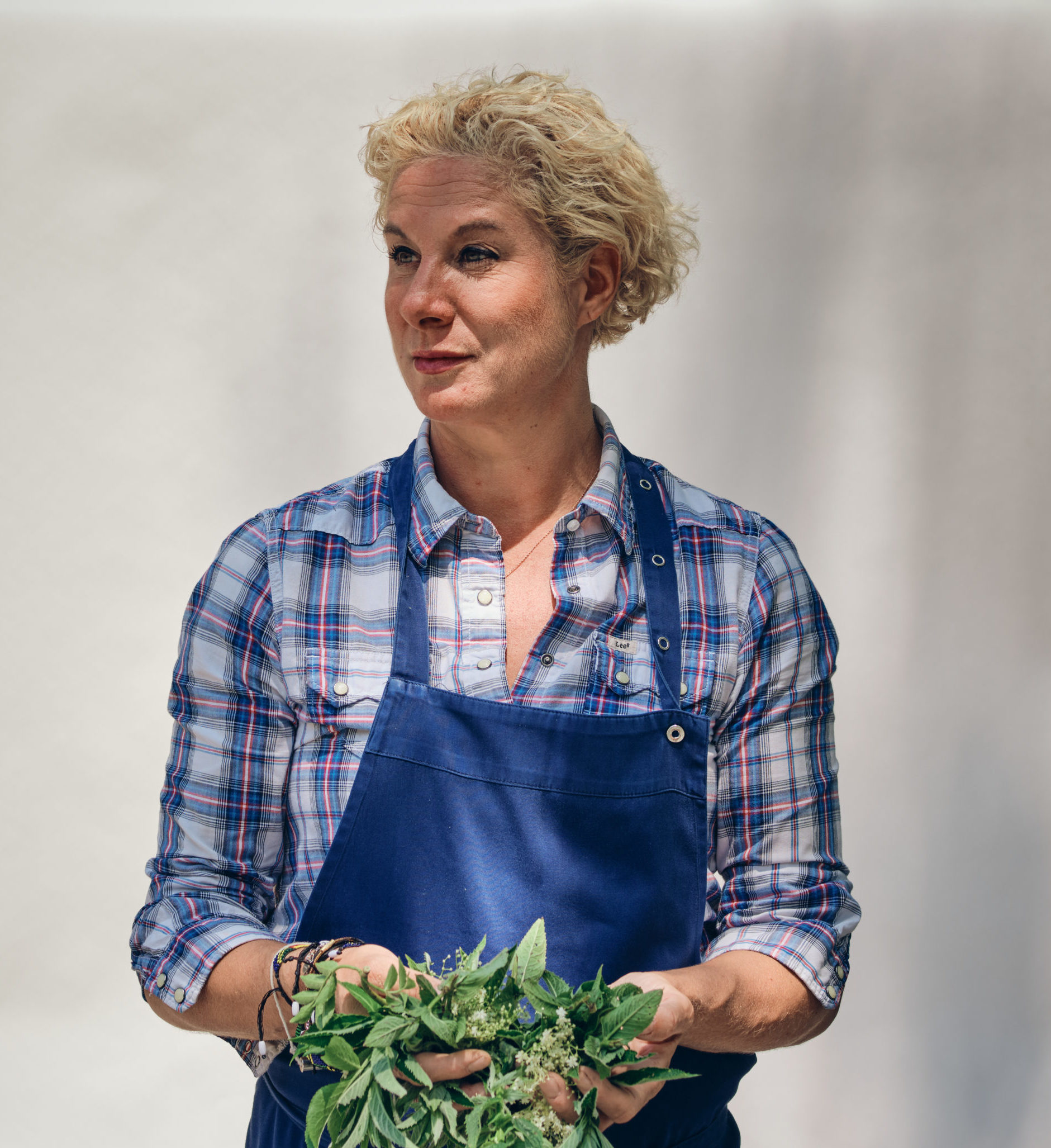 Ana Roš / Photo by Suzan Gabrijel / Press
Ana Roš / Photo by Suzan Gabrijel / Press
More festival guests will be revealed soon. In addition, the festival will also host top pastry chefs and established hotel and restaurant managers from around the world, and all festival events will be attended by the crème de la crème of culinary and lifestyle journalism from around the world.
The Weekend Food Festival is a unique opportunity for all foodies to taste the world’s best cuisines as well as sample excellent Croatian products and wines in one place.
Early bird tickets for the Weekend Food Festival are already on sale, available at weekendfoodfestival.com.
Follow the latest news about this major culinary event on Facebook and Instagram.


